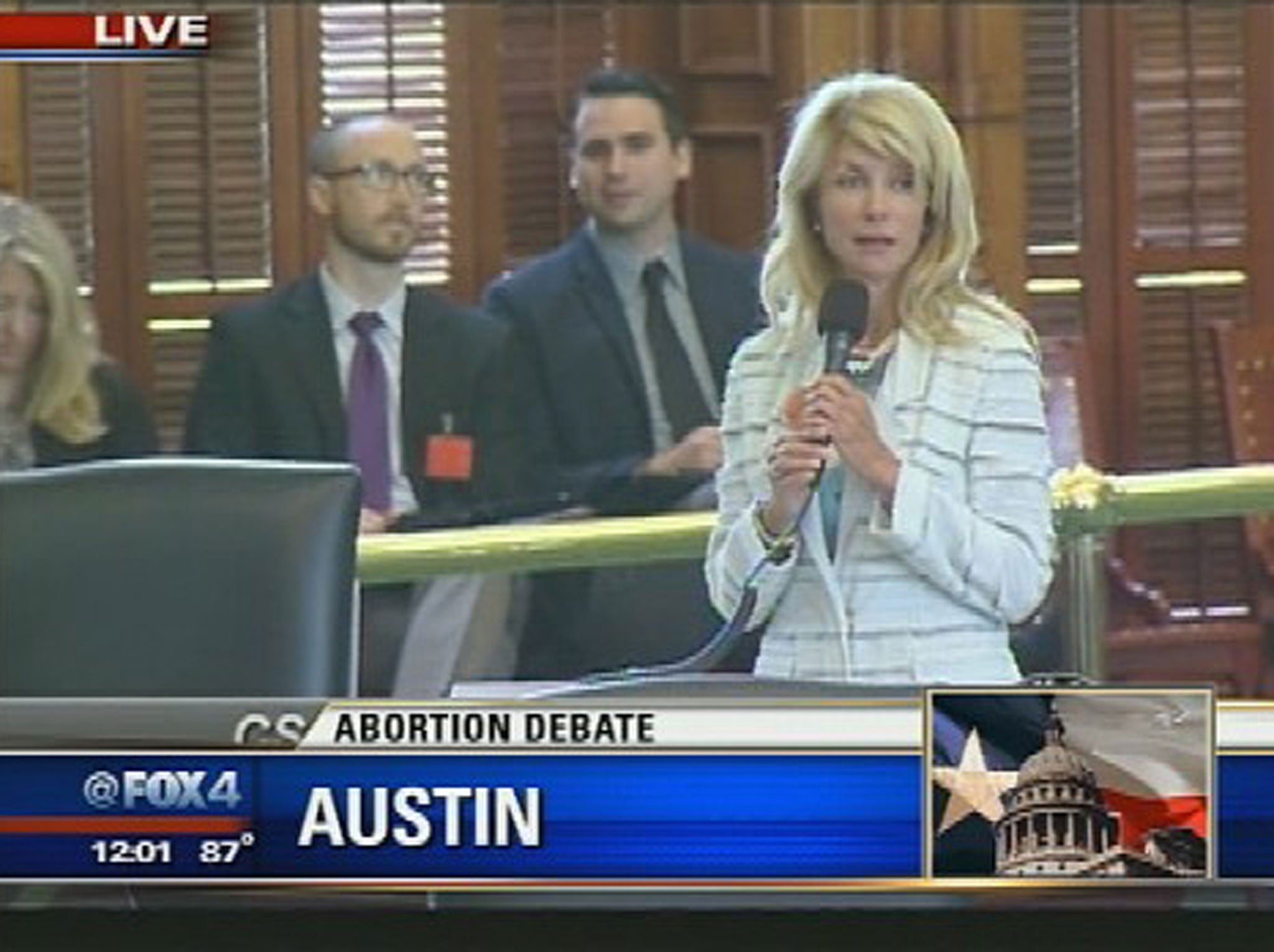Wendy Davis' 10-hour speech propels her into the filibuster super league. She's in varied company
The rules for speaking in the Texas Senate are strict, so Davis' speech blocking an anti-abortion bill is a historical achievement - even if she missed her self-imposed target


Your support helps us to tell the story
From reproductive rights to climate change to Big Tech, The Independent is on the ground when the story is developing. Whether it's investigating the financials of Elon Musk's pro-Trump PAC or producing our latest documentary, 'The A Word', which shines a light on the American women fighting for reproductive rights, we know how important it is to parse out the facts from the messaging.
At such a critical moment in US history, we need reporters on the ground. Your donation allows us to keep sending journalists to speak to both sides of the story.
The Independent is trusted by Americans across the entire political spectrum. And unlike many other quality news outlets, we choose not to lock Americans out of our reporting and analysis with paywalls. We believe quality journalism should be available to everyone, paid for by those who can afford it.
Your support makes all the difference.Though Wendy Davis has not pulled off the longest filibuster in American history, her achievement in staying on her feet for ten hours is in its way unique, even if she missed her self-imposed target.
The rules for speaking in the 31 member Texas Senate are strict. Senator Davis took the floor at 11.18 am, needing to keep talking for 12 hours and 42 minutes to ensure that the bill to close most of Texas’s abortion clinics and ban abortion after 20 weeks of pregnancy missed its midnight deadline. She was not allowed to go off the topic, or to take food or water, or nip to the ladies, or lean on her desk. Her chair was taken away as she began: no sitting allowed.
After 10 hours, in which her marathon was trending on social media, the chairman ruled that the 50 year old senator had strayed off the point and brought her speech to an end. She had failed to reach midnight, but had done enough to block the bill.
Her task would have been easier in the US Senate in Washington, birthplace of the filibuster – a word derived from the Spanish filibustero, which American adventurers picked up in the mid-19th century. The longest in history was the performance by the racist bigot from South Carolina, Strom Thurmond, who delivered a speech that endured for 24 hours and 18 minutes, in a successful bid to block the 1957 Civil Rights Act. He began at 8.54 pm on 28 August 1957, and ended at 9.12 pm the following day.
But Thurmond was operating under easier rules, which allowed him to take the floor equipped with cough drops and malted milk tablets. He was also allowed short interventions from other senators, during which he could sneak to the cloakroom and gobble down a sandwich. An aide was on hand there holding a bucket in case the senator was caught short.
In Parliament, MPs operate under rules almost as strict as those that eventually defeated Senator Davis, though they are allowed to take questions from other MPs in mid speech, or be interrupted by points of order, which help them keep going. In June 1985, when Enoch Powell was due to present a private members’ bill that would have banned stem cell research, Dennis Skinner took up two and a half hours speaking about whether or not to move the writ for a by-election in a seat whose MP had recently died. He made a three-hour speech in January 1989 on the same topic, though involving a different constituency, to prevent Ann Widdecombe introducing a bill to limit abortions.
The longest speech ever delivered on the floor of the Commons during the 20th century was by the Tory barrister, Sir Ivan Lawrence, in March 1985. He spent four hours and 23 minutes on his feet opposing the Flouridation bill.
The Labour MP John Golding holds the 20th century record for the longest parliamentary speech, when he spoke for 11 hours on the Telecommunications bill. But this was in a committee, not in the Commons Chamber, which meant that he could take breaks for lunch and dinner.
Join our commenting forum
Join thought-provoking conversations, follow other Independent readers and see their replies
0Comments